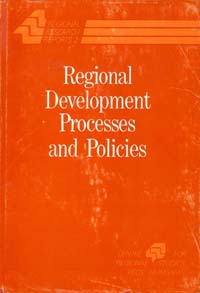 |
REGIONAL DEVELOPMENT PROCESSES AND POLICIES
edited by:
William H. Berentsen - Darrick R. Danta - Eta Daróczi
Pécs : Centre for Regional Studies, Hungarian Academy of Sciences
1989
324 p.
ISBN 963 01 8955 0
|
Technologic change, increased international economic competition, and associated reorganization of goods and service producing entities are resulting in a restructuring of economies in the developed world. In turn, this is causing changes in the interrelated socioeconomic and regional structures of nations’ societies and creating new sets of social and regional problems. Ironically, included among these problems are the need for some nations, whose restructuring has yet to begin in earnest (e.g., in Hungary), to hasten the restructuring process in order to remain competitive in the international market place. There is a clear need for regional planners to devise new types of policies to respond to the political, social, and economic challenges of the 1990s and to implement these policies in an era of lessened support and funding from central governments. This situation presents and opportunity for regional analysts to interpret pattern and process reflected in current trends in regional development in order to provide data and analysis for the policy debate. Increasingly, it would appear that despite the appeal of broad, relatively simple theoretical notions in regional development (e.g., Williamson’s inverted U-curve of regional inequalities or the core—periphery or Sunbelt—Frostbelt dichotomies), greater complexity exists in the pattern and process of development than has generally heretofore been acknowledged. Despite the relatively simple theoretical notions in regional development, there have evolved more sophisticated methodological and empirical approaches for the study of regions. The analytic approach is exemplified by many of the papers in Regional Development Processes and Policies, the second volume of the Regional Research Reports series. Themes that emerge are: (1) sectoral structure, enterprise organization, and regional change; (2) related issues of regional inequalities and policy responses to undesirable regional change (including inequality); (3) spatial patterns of population change in response to economic change; and (4) methodological approaches to regional analysis in complex environments.
Full text of the book